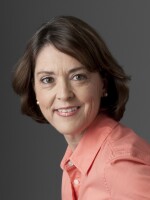A Los Angeles court on Tuesday released hours of videotaped depositions by Cardinal Roger Mahony of the L.A. Archdiocese, regarding how the organization he heads handled a sex abuse scandal. The depositions reveal a system that, intentionally or not, protected priests over children.
Mahony's deposition was taken in a lawsuit involving the Rev. Michael Baker, who is believed to have abused two dozen children over a quarter century. Baker didn't hide his predilections -- he told Mahony back in 1986 that he had been abusing two boys for the previous eight years. Plaintiff's attorney John Manly asked whether he called the police. No, Mahony answered.
"My first approach is always the pastoral one," Mahony says in the deposition.
In this case, that meant sending Baker for treatment and keeping him in restricted ministry where, theoretically, he didn't have access to children. Mahony says he relied on Baker to tell to him where he could find the victims so the archdiocese could help.
According to Mahony, Baker says he didn't know.
"And you believed him?" asks the lawyer.
"Unfortunately, I believed everything he said," replies Mahony.
Baker was moved to nine different parishes over the next few years, several of which had elementary schools attached to them. He was supposed to be monitored, but in 1996, a 16-year-old boy was spotted outside Baker's room in the rectory at St. Columbkill parish. Mahony acknowledges that was a violation of Baker's agreement.
"It was certainly a suspicious activity," Mahony says.
However, when the plaintiff's attorney asks whether child protective services were called and notified of possible sexual abuse, Mahony says no.
"Not that I'm aware of," Mahony says.
'These Were Adults'
Mahony says the archiodese investigated and decided nothing improper happened.
This case was also presented to the Sexual Advisory Review Board, which Mahony had set up in 1994 to advise him when priests were accused of sexual abuse. Judge Richard Byrne has served on the board since the beginning. He told Manly in his deposition that the group heard dozens of cases in the 1990s.
"Did anybody ever ask about the police being called or whether law enforcement had been contacted?" Manly asked.
"I don't believe so," the judge answered.
"Why not?"
"I don't know. It didn't occur to me," the judge said.
Byrne said the board had no authority to investigate cases, nor could they alert the police or parishes that a possible pedophile was in their church.
"But I did assume that whatever needed to be done was being done," Byrne added. "I had that belief in the archdiocese and the system."
But in 2000, two young men in Arizona claimed Baker had been abusing them for 15 years and threatened to sue. The archdiocese settled immediately for $1.3 million. In the deposition, Manly asks Mahony if he then told law enforcement.
"I did not," Mahony says. "The two men were adults. They were not children, so there was no longer suspected child abuse. These were adults."
Mahony's own policies required that the archdiocese alert law enforcement. In addition, Mahony was urged by Richard Loomis, who oversaw all the priests in the archdiocese, to tell parishes about Baker to encourage other victims to come forward.
"Did you specifically direct Monsignor Loomis when he wanted to go to the parishes and make an announcement, not to?" asks the plaintiff's attorney in the deposition.
"I recommended to him that we wait a month or two," Mahony replies.
But Mahony waited almost two years after the settlement before telling the parishes or giving Baker's name to the police -- just after the sex abuse scandal had broken in Boston in early 2002. Even then, Mahony was reluctant. According to an e-mail he wrote to his lawyers in March 2002, the cardinal worried that if he didn't turn over names of the most abusive priests, including Baker, "I can guarantee you that I will be hauled into a grand jury proceeding and I will be forced to give all the names."
'I Believed Him'
At the end of the deposition, Manly asks Mahony if he felt he made any mistakes in handling Baker.
Mahony's answer: I believed him.
"I believed him all along, that he was making progress. He was going to a therapist. There were no new offenses. And I just believed he really intended to reform. And we found out later he lived a huge lie all those years," Mahony says.
Manly believes this deposition shows an attempt by the archdiocese to cover up abuse and protect Baker and dozens of other pedophile priests.
"Until someone is held criminally accountable for this kind of conduct, this scandal and this type of conduct resulting in the rape of children will continue," Manly says.
Archdiocese spokesman Tod Tamberg vigorously disagrees. He says there's no smoking gun that points to criminal conduct and says all this information was laid out in a report in 2004. He says the Baker case is a wake-up call.
"All of us have learned that appearances, explanations and even denials can't be accepted at face value when you're dealing with potential child abuse," Tamberg says.
In a statement issued on Tuesday, Mahony apologized for mishandling the Baker case. He added that the new policies in place will "keep our children and young people safe from predators like Michael Baker."
Copyright 2022 NPR. To see more, visit https://www.npr.org. 9(MDAzMjM2NDYzMDEyMzc1Njk5NjAxNzY3OQ001))






